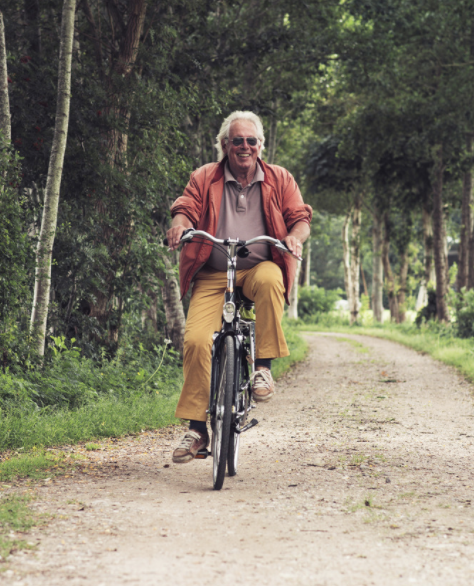Healthy Living: Have You Heard About Lifestyle Medicine?
July 8, 2020

The United States has the dubious distinction of spending much more on health care than other countries, yet experiences worse health outcomes and lower life expectancies. In fact, in the opinion of one family medicine physician, we actually have “a disease care industry not a health care industry.” That is, our system of payments and incentives work to respond once illness strikes rather than to work proactively and preventively to help individuals start and sustain a healthy lifestyle. In fact, data show that 80% of all health care dollars spent in the United States are tied to the treatment of conditions that are rooted in poor lifestyle choices rather than genetic or biological causes. Moreover, it’s not just a matter of dollars and cents. A recent study published in JAMA found a statistically significant association between a healthy lifestyle and the potential for an increased number of disease-free years of life. So, is there an off-ramp to our current way of approaching health care and instead, a pathway to a better quality of life with less potential health care spending? It could be that the field of “lifestyle medicine” is the way forward.
As defined by the American College of Lifestyle Medicine, this approach to medicine “uses whole foods, a plant-predominant dietary lifestyle, regular physical activity, restorative sleep, stress management, avoidance of risky substances, and positive social connection as a primary therapeutic modality for treatment and reversal of chronic disease.” In essence, lifestyle behaviors become the focus of therapeutic interventions to not only address immediate medical problems but to put patients on a path of healthier living going forward. And in case you’re concerned that the science behind this is “squishy,” there is scientifically-validated, growing evidence to support this approach to health care. While this concept may be counter to prior strategies of medical education and practice, increasingly, such prestigious medical centers as Stanford, Northwestern and Baylor are developing lifestyle medicine centers to teach future physicians and to conduct research into better approaches to sustaining health over the course of a lifetime. As Dr. Alex Mroszczyk-McDonald tells his new family practice patients, “30 minutes of physical activity a day, daily stress reduction, a healthy plant-based diet and eight hours of sleep each night will do more for you than any medication or treatment in the world.”
A recent study out of the University of British Columbia underscores that non-medical factors are closely linked to a person’s risk of death. Conditions such as divorce, smoking, alcohol misuse, and financial difficulties are all the sorts of life challenges that can seriously affect your health- and that a “lifestyle medicine” approach aims to address and ameliorate with such strategies as stress reduction, exercise, social engagement, and better sleep patterns. We also know that this sort of holistic approach to health- diet, exercise, sleep, stress management, and social interaction- are also considered the essential pillars of healthy aging. And while they may not guarantee you a healthy life to age 110 (as the Dalai Lama has said is his goal) they may get you to at least a healthy and vital age 85, which is the birthday the Dalai Lama just celebrated. His secret? It contains all the elements associated with lifestyle medicine, including a regular sleep schedule, daily meditation, a largely plant-based diet (with the occasional meal of meat), and staying active. And for him, one other factor: Practicing compassion, something we could all use a little more of in this challenging world.







